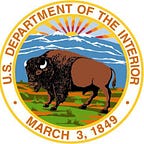Protecting My Home
By Emory Terada, Arctic Youth Ambassador
Growing up in the number one fishing port in the nation can leave quite an impact on a person: you gain a certain admiration for the seas and all they provide.
My name is Cade Emory Terada; I am a second-generation Japanese American living in Dutch Harbor, Alaska. I have lived in Dutch Harbor for 18 years and my most memorable moments are those that I’ve spent fishing with my father.
My father, Hiromoto Terada, grew up in Matsumae, Hokkaido in Japan. He came from a low-income family and dropped out of high school in the 9th grade to work in the fishing industry. Nearly 40 years later, my father still works during the busy fishing season here in Alaska. From his youthful years spent in Japan, and throughout his time working here in Alaska, he developed a passion for fishing, and he never neglected to bring me along with him.
My father always stressed balancing a hobby with one’s work, and eventually, he passed the same hobby onto me. That’s where my story begins as an Arctic Youth Ambassador.
The love my father instilled within me for fishing led me to pursue environmental activism because our oceans are being threatened by ocean acidification.
My community, and many others like it, depends on the oceans for the sustainable resources that they provide along with the jobs and economy that they create. They have helped me understand that change coming from the local level can be just as powerful as change at a national level. As an Arctic Youth Ambassador, the program has helped me to use my voice to educate the public on important issues that pertain to them. The program has also broadened my understanding of the world and improved my communication skills through keynote presentations, conferences and forums.
I was excited and grateful to participate in the “Students On Ice” program this summer. I lived on a ship with 120 other students and explored the world’s Arctic regions. This was an extraordinary experience for me because I was representing my state and my country, and I was also the first ever student from Alaska to participate in the program. On my trip, I saw polar bears (the first time I saw a bear in the wild), icebergs larger than skyscrapers, and I met students from around the world and from all different walks of life. I met students from India, the Bronx, China and even Malaysia.
One thing that I learned from them was how much the Arctic means, globally, regardless of where you come from.
After learning about these issues, I hope to bring change within my own community and my state. My home is already seeing impacts — many people were laid off recently due to a poor crab season. I want my community to see that we have to preserve what we have so that we may have a sustainable fishery, lasting for at least the next seven generations. It’s my responsibility as an ambassador to protect my home by protecting the jobs and families that depend on them.
I speak for the families dependent on the fisheries, and for the land the industries depend on: We are all dependent on the good health of our earth.
The Arctic Youth Ambassadors program was established by the U.S. Fish and Wildlife Service-Alaska Region, U.S. Department of the Interior, and U.S. Department of State in partnership with nonprofit partner Alaska Geographic.
